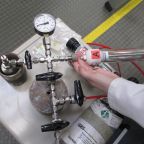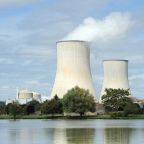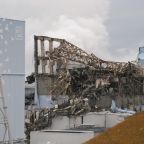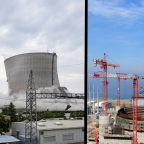Search results

Claystone, salt rock or granite – it is in one of these three host rocks that a repository for high-level radioactive waste is to be constructed in Germany. This is where the waste is to be safely contained for one million years. In a current project carried out in GRS's geoscientific laboratory, research is being conducted into how the properties of claystone formations are changed by the waste emplaced.
GRS experts develop computational code that can be used to simulate muon radiographic images in order to test the suitability of the method for examining storage casks for spent fuel assemblies
On this page you will find the corporate governance reports of the last five years.

As of today (20 January 2022), the operator EDF has taken five of its reactor units off the grid due to cracks in the weld seams in the safety injection systems. According to statements by the French expert organisation IRSN, it cannot be ruled out at present that these crack indications are a generic problem that could also affect other plants. The following article provides an overview of the current state of knowledge. It is based on information from the French supervisory authority ASN, the operator EDF, and our French partner IRSN, with whom we maintain a close technical exchange via the European network ETSON.
K.-P. Kröhn, M. Kröhn
M. Navarro

Coordinated by the Nuclear Energy Agency of the Organisation for Economic Co-operation and Development (OECD/NEA), a new international research project has been launched to examine further the accident sequences at Fukushima Daiichi. Together with 21 institutions from 11 countries, Germany - represented by GRS - will also participate in the project "Analysis of Information from Reactor Buildings and Containment Vessels of Fukushima Daiichi NPS" (ARC-F). The three-year project is led by the Japan Atomic Energy Agency (JAEA).

What has happened in the field of nuclear energy last year? What developments can be observed internationally? In 2021, a total of six new reactor units were connected to the grid, including one small modular reactor – on the other hand, ten units have been decommissioned, including three of the six German units that have remained until then. Accordingly, the installed net capacity decreased to a total of 388,600 megawatts.
ETSON is the network of technical safety organisations (TSOs) in Europe. The TSO of a country supports the national licensing and supervisory authorities in all scientific and technical questions concerning nuclear safety.
In 2011, the most severe nuclear accident since Chernobyl occurred at the Fukushima Daiichi nuclear power plant site in Japan. The accident was classified at the highest level of the International Nuclear Event Scale (INES).